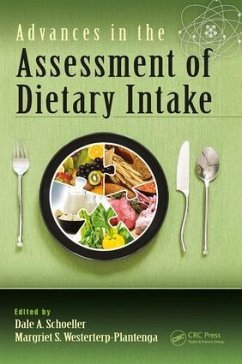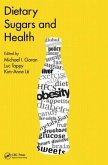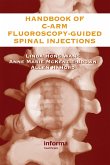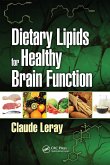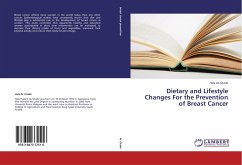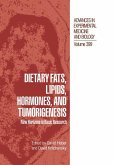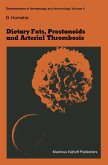Advances in the Assessment of Dietary Intake.
Herausgeber: Schoeller, Dale A.; Westerterp, M.
Advances in the Assessment of Dietary Intake.
Herausgeber: Schoeller, Dale A.; Westerterp, M.
- Gebundenes Buch
- Merkliste
- Auf die Merkliste
- Bewerten Bewerten
- Teilen
- Produkt teilen
- Produkterinnerung
- Produkterinnerung
Considerable evidence proves that self-reported dietary intake using written diaries or recalls are subject to bias resulting in poor accuracy. While dietary intake data are needed to drive many nutritional policies, the obesity epidemic has increased the need to assess diet with absolute accuracy.
Andere Kunden interessierten sich auch für
![Dietary Sugars and Health Dietary Sugars and Health]() Dietary Sugars and Health253,99 €
Dietary Sugars and Health253,99 €![The Handbook of C-Arm Fluoroscopy-Guided Spinal Injections The Handbook of C-Arm Fluoroscopy-Guided Spinal Injections]() Linda Hong WangThe Handbook of C-Arm Fluoroscopy-Guided Spinal Injections252,99 €
Linda Hong WangThe Handbook of C-Arm Fluoroscopy-Guided Spinal Injections252,99 €![Dietary Lipids for Healthy Brain Function Dietary Lipids for Healthy Brain Function]() Claude LerayDietary Lipids for Healthy Brain Function72,99 €
Claude LerayDietary Lipids for Healthy Brain Function72,99 €![Dietary and Lifestyle Changes For the Prevention of Breast Cancer Dietary and Lifestyle Changes For the Prevention of Breast Cancer]() Hala Al- OtaibiDietary and Lifestyle Changes For the Prevention of Breast Cancer51,99 €
Hala Al- OtaibiDietary and Lifestyle Changes For the Prevention of Breast Cancer51,99 €![Dietary Fats, Lipids, Hormones, and Tumorigenesis Dietary Fats, Lipids, Hormones, and Tumorigenesis]() Dietary Fats, Lipids, Hormones, and Tumorigenesis125,99 €
Dietary Fats, Lipids, Hormones, and Tumorigenesis125,99 €![Dietary Fats, Prostanoids and Arterial Thrombosis Dietary Fats, Prostanoids and Arterial Thrombosis]() G. HornstraDietary Fats, Prostanoids and Arterial Thrombosis42,99 €
G. HornstraDietary Fats, Prostanoids and Arterial Thrombosis42,99 €![Dietary Phenylalanine and Brain Function Dietary Phenylalanine and Brain Function]() WURTMANDietary Phenylalanine and Brain Function74,99 €
WURTMANDietary Phenylalanine and Brain Function74,99 €-
-
-
Considerable evidence proves that self-reported dietary intake using written diaries or recalls are subject to bias resulting in poor accuracy. While dietary intake data are needed to drive many nutritional policies, the obesity epidemic has increased the need to assess diet with absolute accuracy.
Hinweis: Dieser Artikel kann nur an eine deutsche Lieferadresse ausgeliefert werden.
Hinweis: Dieser Artikel kann nur an eine deutsche Lieferadresse ausgeliefert werden.
Produktdetails
- Produktdetails
- Verlag: CRC Press
- Seitenzahl: 390
- Erscheinungstermin: 16. August 2017
- Englisch
- Abmessung: 260mm x 183mm x 25mm
- Gewicht: 926g
- ISBN-13: 9781498749329
- ISBN-10: 1498749321
- Artikelnr.: 48741810
- Herstellerkennzeichnung
- Books on Demand GmbH
- In de Tarpen 42
- 22848 Norderstedt
- info@bod.de
- 040 53433511
- Verlag: CRC Press
- Seitenzahl: 390
- Erscheinungstermin: 16. August 2017
- Englisch
- Abmessung: 260mm x 183mm x 25mm
- Gewicht: 926g
- ISBN-13: 9781498749329
- ISBN-10: 1498749321
- Artikelnr.: 48741810
- Herstellerkennzeichnung
- Books on Demand GmbH
- In de Tarpen 42
- 22848 Norderstedt
- info@bod.de
- 040 53433511
Dr. Dale A. Schoeller is a director of the Isotope Ratio Laboratory in the Biotechnology Center and is the professor emeritus in Nutritional Sciences and the University of Wisconsin-Madison, Madison, Wisconsin. He was the first investigator to use the doubly labeled water method to measure total energy expenditure in humans, which led to the observation that self-reported dietary assessment instruments systematically underestimated dietary energy intake compared to the amount of energy that individuals were actually expending. This work by him and many others resulted in paradigm shift in validating and modeling the error structure in dietary assessment instruments. More recently, he collaborated with leading nutrition epidemiologists to use the doubly labeled water method as a biomarker of habitual energy intake to quantify systematic errors in dietary energy intake instruments forming the basis of his work that resulted in this book. He earned his undergraduate degree from the University of Wisconsin-Milwaukee, Milwaukee, Wisconsin and his PhD in Chemistry from Indiana University, Bloomington, Indiana. He was trained as a post-doctoral fellow in Biomedical Sciences at the Argonne National Laboratory, Lemont, Illinois and joined the faculty of Medicine at the University of Chicago (Illinois, Chicago), where he directed the Stable Isotope Core Laboratory as part of the Clinical Nutrition Research Unit. For the last 20 years, he continued his research on the energetics of obesity at the University of Wisconsin-Madison. His research has been recognized through multiple awards including the Herman Award for Clinical Research from the American Society for Clinical Nutrition, the O.W. Atwater Award for Research from Agricultural Research Service, and the Friends of Mickey Stunkard Lifetime Achievement Award from the Obesity Society. Dr. Margriet S. Westerterp-Plantenga is a professor of Food Intake Regulation in Humans, at Maastricht University Faculty of Health, Medicine and Life Sciences, School of Nutrim, Department of Human Biology, Maastricht, the Netherlands. In her productive career in human research, she has focused on the mechanisms of energy and reward homeostasis. This has involved diverse research on satiety and the role of orexigenic and anorexigenic hormones and glucose; the physiology of dietinduced thermogenesis and body-temperature regulation; circadian rhythm and sleep; and energy balance, macronutrient balance, and substrate oxidation. These studies have made major contributions to the understanding of food reward and related brain-signaling pathways and have done so with a strong perspective in their roles in the regulation of body weight and body composition. She earned her undergraduate degree in Biology from the University of Groningen, Groningen, the Netherlands and her PhD degree in Biomedical Sciences from Maastricht University. She was a member of the Faculty Board of the Faculty of Health Sciences at Maastricht University and was responsible for the Research portfolio. She is currently an associate editor of the International Journal of Obesity and a member of the Editorial Board of Physiology and Behavior. She has been a project leader at the Leading Technological Institute of Food and Nutrition in the Netherlands and one of the leaders of several European projects, such as Diogenes, Full4Health, and at present PREVIEW. She has published about 240 papers in internationally peer-reviewed journals and authored and edited several books on food intake and energy expenditure.
Current Human Research Questions being addressed through Laboratory and
Free-Living Dietary Methods. Advantages and Limitations of Laboratory
Methods. Advantages and Limitations of Traditional Free-Living Methods.
Statistical Approaches to Adjust for Bias of Traditional Recall and Diary
Methods. Computer Assisted Dietary Recall Methods. Dietary Energy Intake
Models to Assess Energy Intake. Dietary Biomarkers. Isotopic Biomarkers.
Photographic Diet Diaries. Chewing and Swallowing Sensors to Detect Eating
Events. Compendium of Novel Electronic Monitoring Devices being
Investigated to Assess Dietary Intake.
Free-Living Dietary Methods. Advantages and Limitations of Laboratory
Methods. Advantages and Limitations of Traditional Free-Living Methods.
Statistical Approaches to Adjust for Bias of Traditional Recall and Diary
Methods. Computer Assisted Dietary Recall Methods. Dietary Energy Intake
Models to Assess Energy Intake. Dietary Biomarkers. Isotopic Biomarkers.
Photographic Diet Diaries. Chewing and Swallowing Sensors to Detect Eating
Events. Compendium of Novel Electronic Monitoring Devices being
Investigated to Assess Dietary Intake.
Current Human Research Questions being addressed through Laboratory and
Free-Living Dietary Methods. Advantages and Limitations of Laboratory
Methods. Advantages and Limitations of Traditional Free-Living Methods.
Statistical Approaches to Adjust for Bias of Traditional Recall and Diary
Methods. Computer Assisted Dietary Recall Methods. Dietary Energy Intake
Models to Assess Energy Intake. Dietary Biomarkers. Isotopic Biomarkers.
Photographic Diet Diaries. Chewing and Swallowing Sensors to Detect Eating
Events. Compendium of Novel Electronic Monitoring Devices being
Investigated to Assess Dietary Intake.
Free-Living Dietary Methods. Advantages and Limitations of Laboratory
Methods. Advantages and Limitations of Traditional Free-Living Methods.
Statistical Approaches to Adjust for Bias of Traditional Recall and Diary
Methods. Computer Assisted Dietary Recall Methods. Dietary Energy Intake
Models to Assess Energy Intake. Dietary Biomarkers. Isotopic Biomarkers.
Photographic Diet Diaries. Chewing and Swallowing Sensors to Detect Eating
Events. Compendium of Novel Electronic Monitoring Devices being
Investigated to Assess Dietary Intake.

